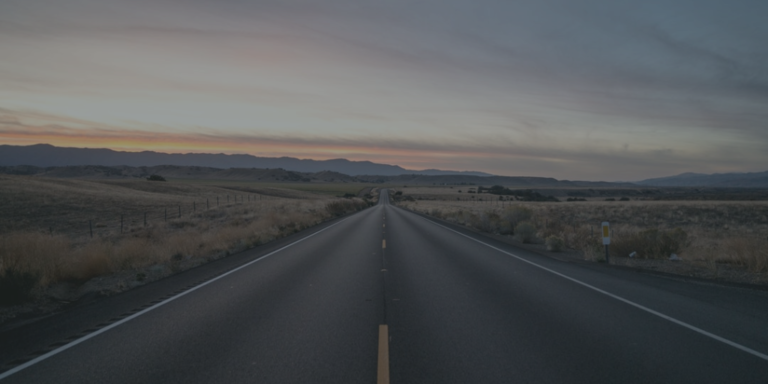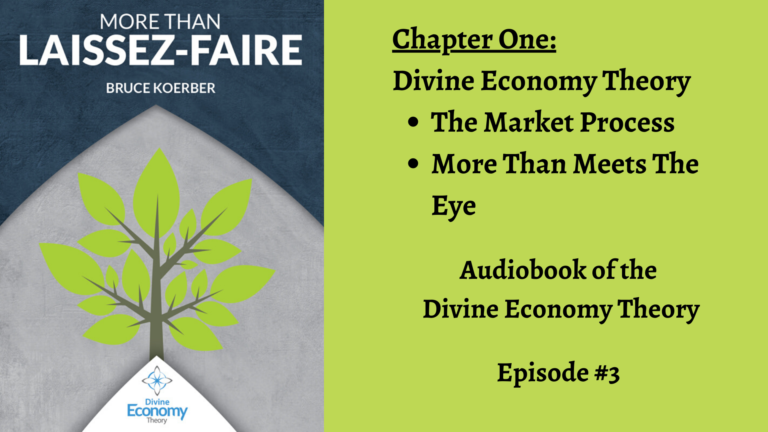This is an economic audiobook that will take you on a journey and Chapter One covers the adventure of activation, economics to the core, and the nature of the economy.
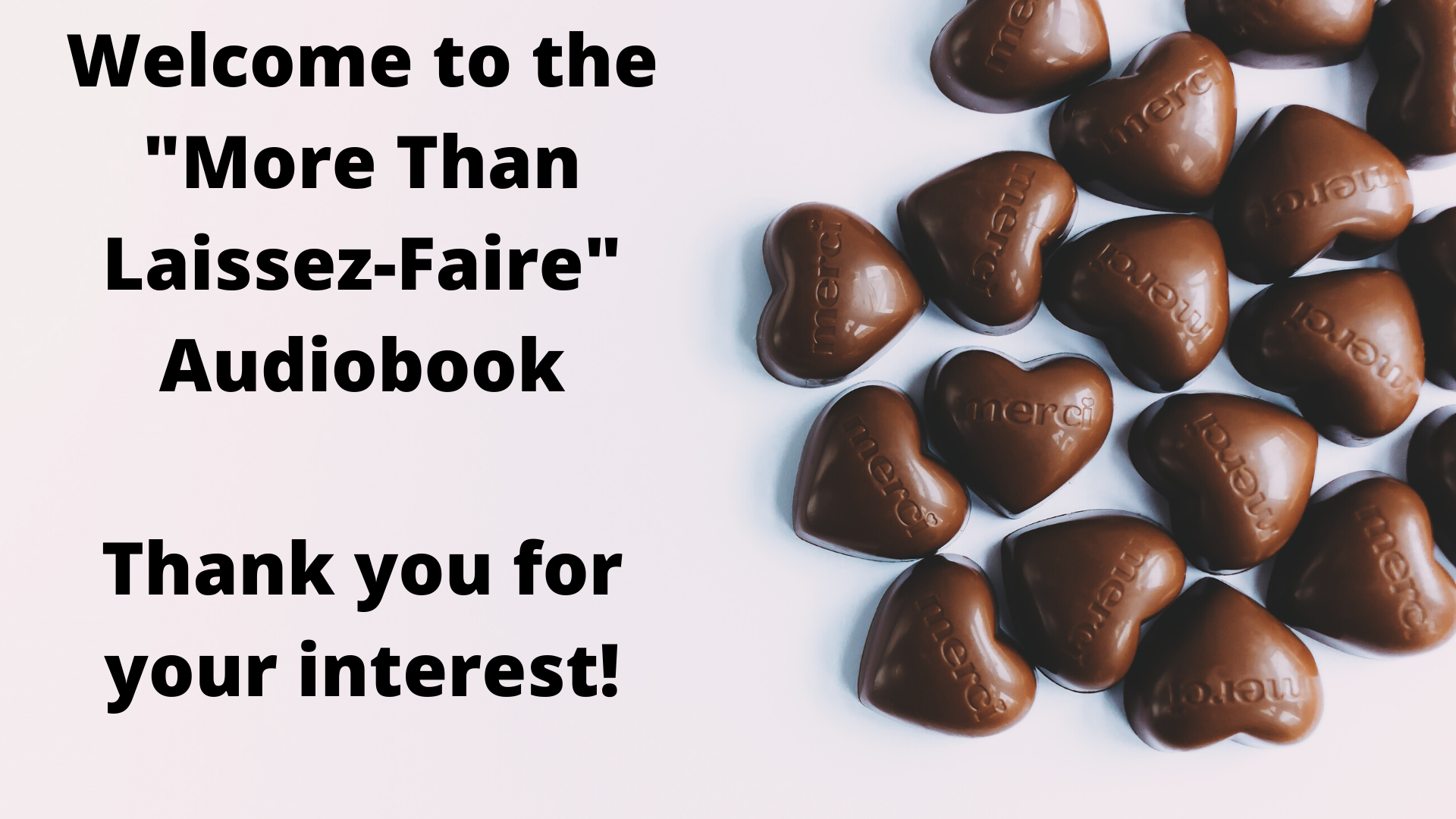 Here’s the video recording of this session of the audiobook. Below is the transcript.
Here’s the video recording of this session of the audiobook. Below is the transcript.
You can contact me if you have any questions.
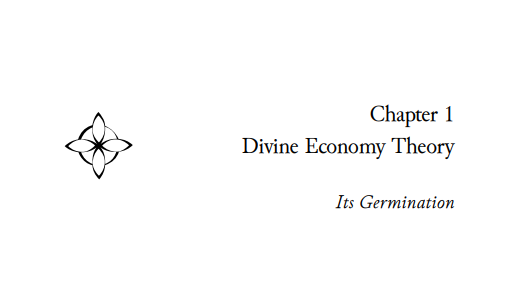 Preface
Preface
Encapsulated within the shell of the seed coat is the theory of economics. It has set there for ages and is in direct contact with the earth and the earthly conditions. Those seeds that were not viable succumbed to the oxidizing forces of the earth. Among the viable seeds there were two kinds remaining: the weeds, and the true seeds of economic science. We want to discard the weed seeds and we want to understand the organism of true economic science, as set forth in the divine economy theory.
Take this economic journey:

Activation
We will start by asking the question: What would it take to bring together the theory and the reality of the economy? The answer lies in a process similar to germination, a process which has been activated by the great forces at play in the world right now. Knowledge in the garb of newness perceptibly exists. It attracts our attention because we are remarkably entrepreneurial in spirit. At that instant a new germ begins to grow and the vital process within it has an inherent nature that transforms itself and its surroundings. Then this new and transformed knowledge of reality finds its way into theory, hence there is a union here between theory and reality.
How can our current plight and the past plight of humanity be reconciled with the human potential for good? Of course no one thinks that humans are perfect. Errors and mistakes are clear signs of imperfection. However, relative perfection is possible and this degree of perfection occurs most readily when the flow of information is optimal. In our search for perfection each of us is attracted to those things that bring about human prosperity, which in essence is the equivalent of the ‘expression of oneself.’
New insight into the economy will come shortly—as it is presented in this book—and these insights will reveal new possibilities. What has to be assumed so far from these introductory remarks is that what has germinated is a mighty apple tree that will grow stronger and stronger. And its branches will provide a sheltering canopy. The further along in its developmental stages the more it alters its own surroundings which then becomes a key feature in and of itself. As it matures its vitality becomes increasingly evident and significant.
Take this economic journey:
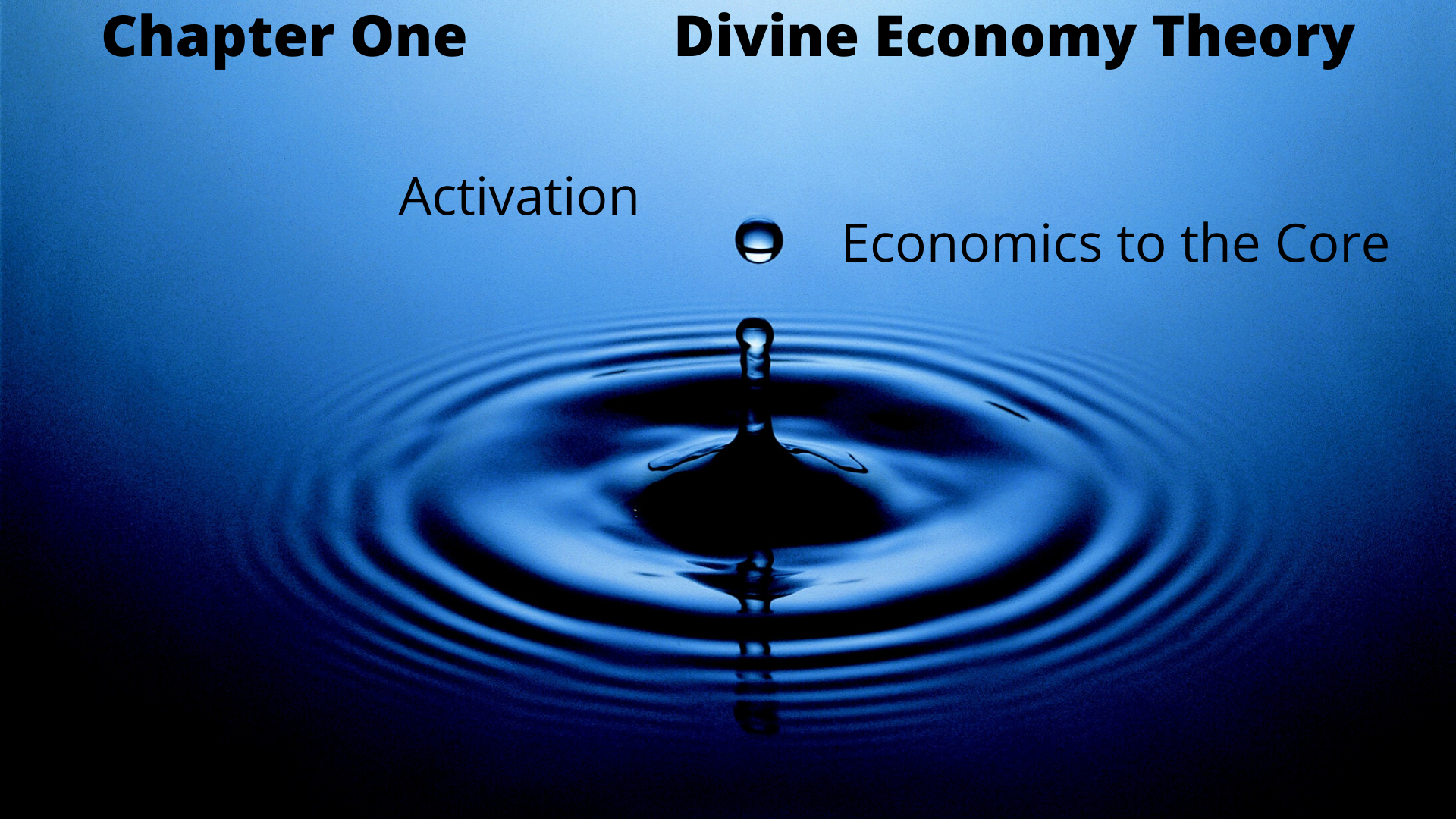
Economics to the Core
The origin of the economy is intricately intertwined with the origin of man, which is ancient and even still a mystery. It taxes all the discerning powers of historians and archeologists to discover the origin of man. Why does this veiled past have anything to do with the economy? The premise of this book is that the economy is a uniquely human institution and that without the human being there would be no such thing as the economy. Speaking in these terms it is obvious that they both appear and evolve concurrently.
The intimately woven fabric composed of both humanity and of the economy necessitates a deep examination into the nature of mankind. What we find is that the human urge to act is irresistible, and that human action stems from the same source as human reason.
Although rudimentary in the early stages of development, the early actions taken by primitive human beings were very much of the moment and yet they were also important agents of transformation. Notice the dynamic here—the spontaneity between the act and the transformation—a dynamic that conveys great meaning. One does not exist without the other and yet each spark of interplay reveals new possibilities. It is then this cumulative effect of human actions and the subsequent transformation, taken throughout time and across time, which brings to us the modern economy.
A moment of reflection is now needed for us to be able to discern what is real and foundational. As I just mentioned, the economy is a uniquely human institution. Since the human being can dwell in the world of relative perfection or imperfection the potential then exists for the economy to be in one of two states. If the higher nature of humanity is realized then the institution (the economy) that is a tool for the expression of human action will itself be elevated and celestial. Frankly, it is the divine nature of the human being which is his true reality and therefore it can be deduced that the highest potential of the institution of the economy is divine.
What is the current condition of the modern economy? It is true that the modern economy carries the cumulative effect of human actions taken over time. Errors from economic ignorance have accumulated, consequently along the way unnecessary burdens have been added. These add weight and bulk, since after all, the burdens are cumulative.
The metaphorical divine charger, because of these cumulative burdens, cannot traverse the span of contemporary history nimbly and ably. It may stumble. It may have to reverse or change courses. These burdens slow the arrival of the triumph of prosperity, which is our birthright provided we recognize and endeavor to attain our divine nature.
We must sort out the reason for the burdening or weakening of the institution (the economy) that serves to bring about our betterment. Understanding human nature sheds some light on the subject. The will to choose the higher perfections versus choosing the imperfections of our lower nature is at the crux. It turns out that ego-driven intervention is the best economic example of humans exercising their lower
nature. Just as metal oxidizes and becomes corrupt, so too the economy deteriorates when it is corrupted by intervention.
Take this economic journey:
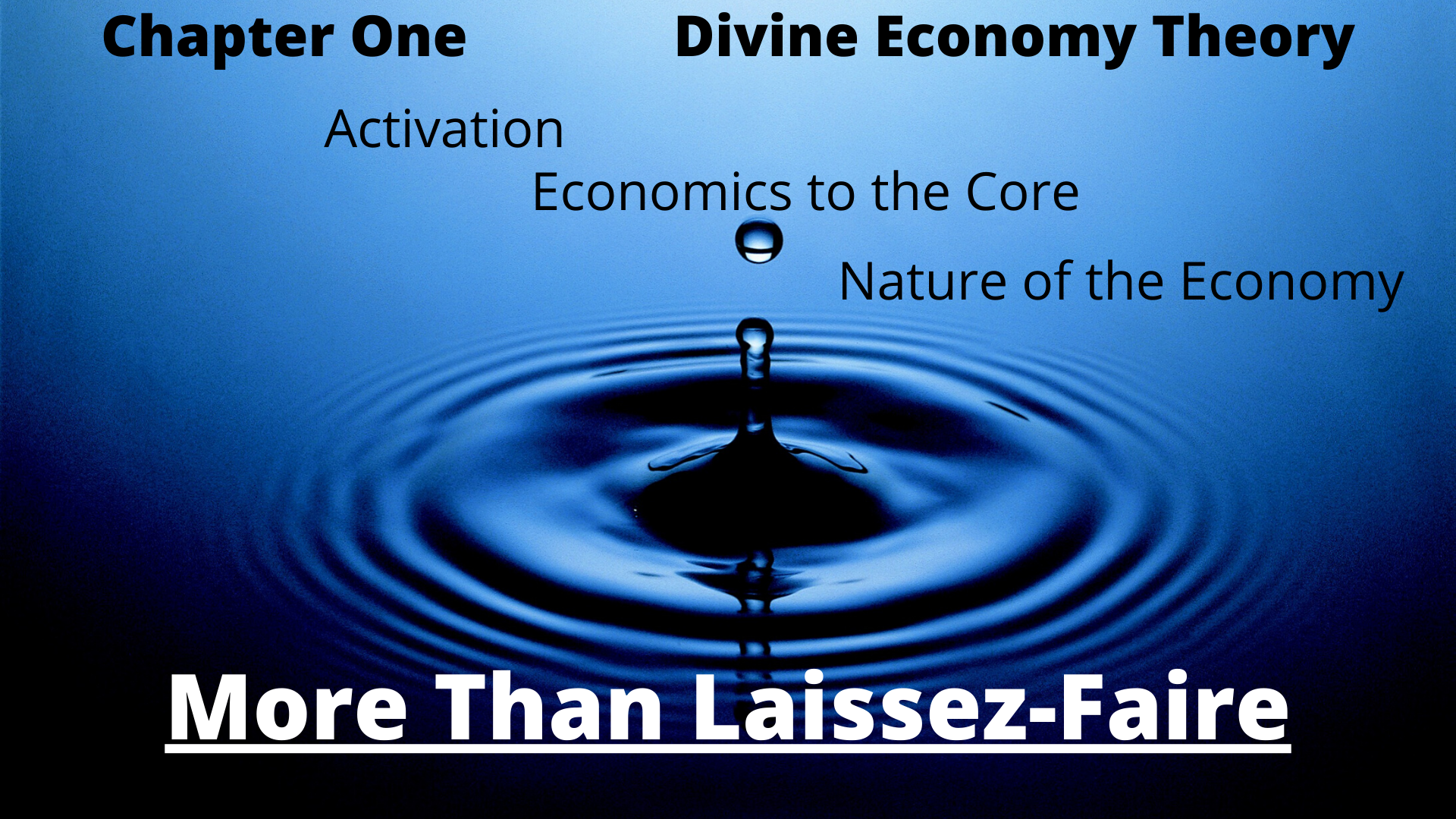 Check out “More Than Laissez-Faire” on Amazon.
Check out “More Than Laissez-Faire” on Amazon.
The Nature of the Economy
Herein lays the beginning of the problem that needs to be dealt with using economic science. The economy which is viewed as a human institution, has not been seen up until now and as I propose, as divine. The economy has a pure form to be striven towards.
How do we know what the uncorrupt economy looks like unless it is seen as having a pure form? Those who recognize that the economy operates perfectly well independently hold “laissez-faire” up as the pure form. But they have not made any connection to the divine nature of the human being as an essential identity. This is a new thought and is worthy of consideration.
Granting that the economy is divine implies the following: that the actors are seen as expressive agents of the will of mankind, that there is no omniscience within the realm of human policy-making that can even minutely compare to the divine expression inherent in the market, and that the market is not a product of human design. The market is a divine institution that emerges spontaneously from human action. It is a social institution that forms for the sake of production. The market is the time and place where the convergence of all of this useful information transpires and where it is discovered.
I hope you enjoyed your economic journey.
Here’s the video recording of this session of the audiobook.
If you want to be notified at the time when the audiobook is Live on Facebook sign up here.
You can contact me if you have any questions.



